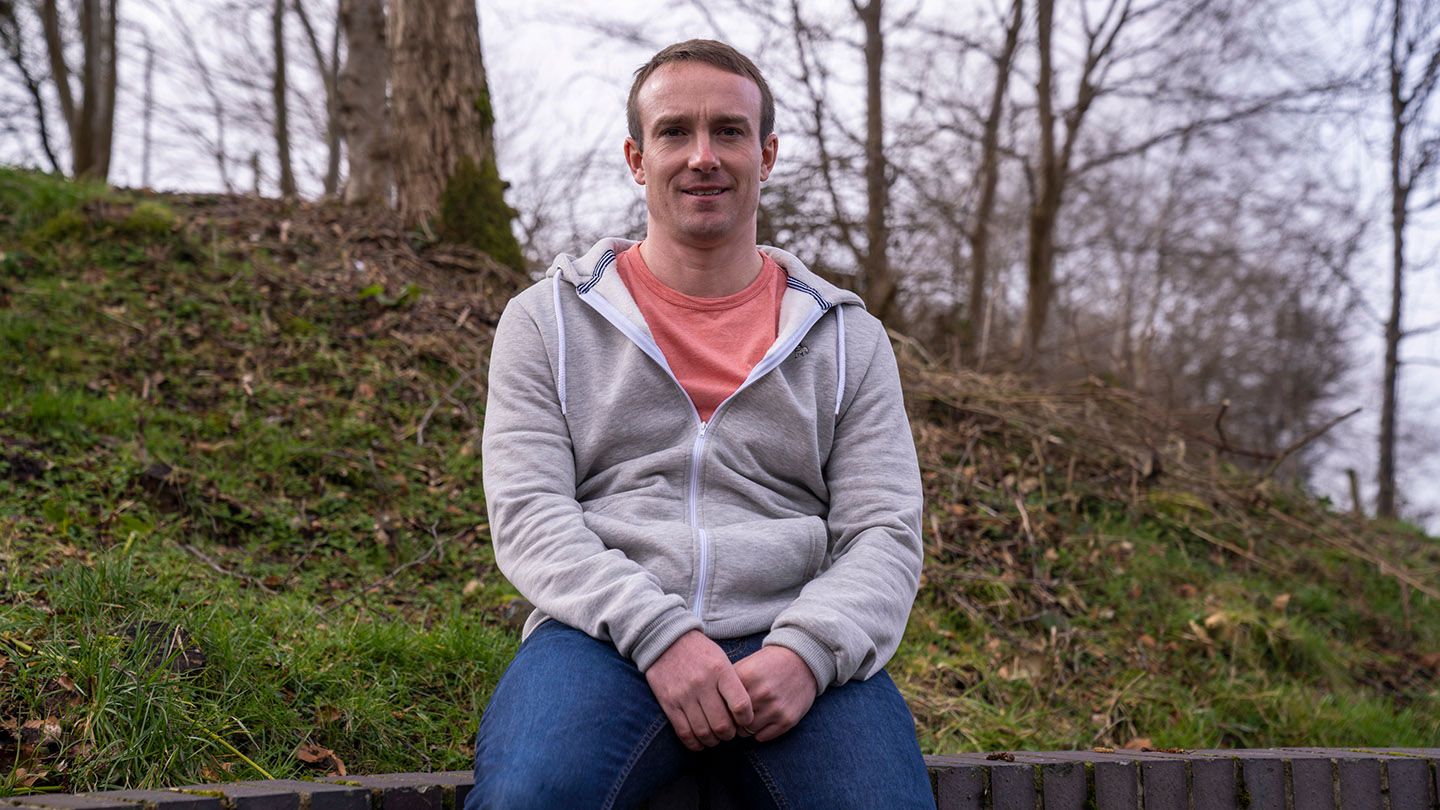
Culture
Banking on military talent
Lewis Taylor shares how 12 years in the military has helped him to transition into banking – and tells us about the Barclays initiatives supporting other service people considering a career in finance.
“When I was younger, I just wanted something a bit different, something that I knew a typical employer couldn't really offer me – a great challenge, a bit of adventure.”
Lewis Taylor was 20-years-old when he joined the 2nd Battalion, The Royal Regiment of Scotland within the infantry. Raised in Falkirk, Scotland, Taylor was based in Edinburgh during his 12 years in the military. There, he learned a whole range of new skills – though he didn’t realise immediately how transferable they might be.
“In my final role as a Training Sergeant for the Reconnaissance Platoon, I was essentially a project manager,” he explains. “I managed the whole cycle of training a team of specialist role reconnaissance soldiers, from planning through to delivery, and post-training review to see what could be improved for future iterations – which is very similar to what I do now.
“In the infantry you don’t necessarily leave with a technical trade like you would in other parts of the military, but due to the nature of the role, you gain a variety of skills that can be transferred into the civilian world – such as stakeholder management, leadership and risk management.”
When it came to looking for a change in career, it was knowledge, skills and experience gained in the military that allowed Taylor to thrive when he joined Barclays’ Military Talent Scheme after hearing about it from a fellow veteran.

Along with his badges, Taylor earned the Operational Service Medal for Afghanistan and an award for outstanding contribution in the military
The army is one of the better places for developing leadership skills, and you probably have quite a diverse level of leadership, because you interact with so many people of varying backgrounds and experiences
Project Manager, Barclays
Military Talent Day – and beyond
Launched under Barclays’ Military and Veterans Outreach initiative, the Military Talent Scheme supports people during their transition from the service into employment in the civilian world. Open to any service leaver, regardless of service or rank, who is in the last six months of their resettlement period, the scheme provides an eight-to-12-week work placement in an established team – with opportunities throughout to apply for a permanent role with Barclays.
Taylor explains that while there is “plenty of support” for candidates participating in the scheme, “the onus is very much on the candidate to go out and network, enquire into different areas and roles and to really use the time to understand where their skills can best be transferred into the bank”.
Taylor, who is now a Project Manager at the bank, says the ability to network was one of the strongest aspects of the scheme, which he completed earlier this year. “With access to Barclays’ systems, I could network with people much more easily than if I hadn’t been on the scheme. Everyone was willing to take the time to speak to me, hear about my experiences, tell me about their role – and whether my skills and experiences were relevant to the work they do.”
The programme also helped to reinforce the value of Taylor’s experience. “I was worried that I didn’t have the financial services experience of other candidates, but this really opened my eyes to how transferable my skills were. It made me realise that I do have credible, relevant experience – and a lot of valuable skill sets.”
During the programme, candidates are given the opportunity to apply for full-time roles at Barclays – which is how Taylor found a permanent position. He says his current role has similarities to his role delivering training as a sergeant in the army.
“My part in the team is about training and communications,” he says. “It’s a lot of stakeholder management, asking the right questions – and liaising with a variety of people to help push decisions through and keep projects progressing.”
I was worried that I didn’t have the financial experience of other candidates, but the Military Talent Scheme really opened my eyes to how transferable my skills were
Project Manager, Barclays
Apply to the Military Talent Scheme
To find out how to apply for the Military Talent Scheme, please visit Barclays’ Military and Veterans Outreach page. Applications are accepted throughout the year via the Careers Transition Partnership and are open to those in resettlement and still serving in the UK military.
The scheme provides an opportunity for participants to work with and learn from colleagues in many different areas of the business, build valuable networks and share knowledge and skills to help Barclays best serve its customers, communities and colleagues.

The Military Talent Scheme helped Taylor find permanent placement at Barclays.
Military Talent Day – and beyond
Barclays’ Military and Veterans Outreach activities include a number of other measures aimed at helping military talent transition to civilian roles. Kevin Gartside, Head of Military and Veterans Outreach at Barclays, says programmes like these are essential.
“We are delighted to support ex-service individuals through their transition to civilian roles,” he says. “The placements, workshops and events that we offer, as well as the insight that ex-forces Barclays colleagues can provide, illuminate the value that military talent brings to Barclays.”
An important focus for the bank is its Military Talent Day, a virtual event taking place on 25 March, which offers an opportunity for service personnel, veterans and military spouses to gain insight into the financial industry through a range of talks and workshops.
Taylor encourages any military personnel to use the day to learn more about a potential career shift, and to consider the skills they have earned through their time in the military. “It’s about being able to translate your skills into something that civilian counterparts can understand,” he says.
He also urges employers to consider the skills that ex-forces individuals have to offer, saying that companies “shouldn’t be put off by hiring someone who lacks experience within the finance sector, as they can bring in other qualities that those inside your organisation may not possess”.
In fact, he argues, a military background can be an asset: “The army is one of the better places for developing leadership skills, and you probably have quite a diverse level of leadership, because you interact with so many people of varying backgrounds and experiences, in often very challenging circumstances.”
As for those considering a new career after the armed services, Taylor’s advice is simple. “It can be quite a leap of faith, leaving the military,” he says. “I think people tend to feel a bit trapped, with a fear of the unknown, because they can become institutionalised. But it’s about finding the role that suits you – something that you’re good at and that you’ll enjoy.”
The Barclays programmes supporting military talent
Barclays Military and Veterans Outreach (MVO) offers a range of initiatives, providing opportunities for serving personnel, veterans, Guard and reservists and the wider military family in the UK and US.
Armed Forces Transition, Employment and Resettlement (AFTER) helps to address the challenges service personnel and veterans face when transitioning into civilian life. The Military Talent Scheme is AFTER’s flagship programme.
Veterans’ Employment Transition Support (VETS) is a coalition of 170 industry partners led by Barclays, which helps veterans – regardless of rank, service or circumstance – find the right job.
Armed Forces Banking (AFB) offers a range of bespoke Barclays banking products and services, designed to meet the unique needs of service personnel, veterans and forces families.
Military Talent Day will take place on 25 March 2021, and provides an opportunity for service personnel, veterans and military spouses and partners interested in financial services to get an insight into the sector. Register for the event.
Find out more about Military and Veterans Outreach at Barclays.